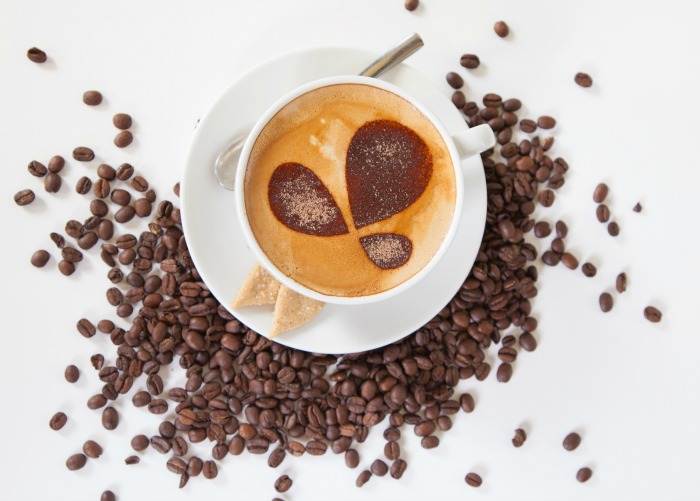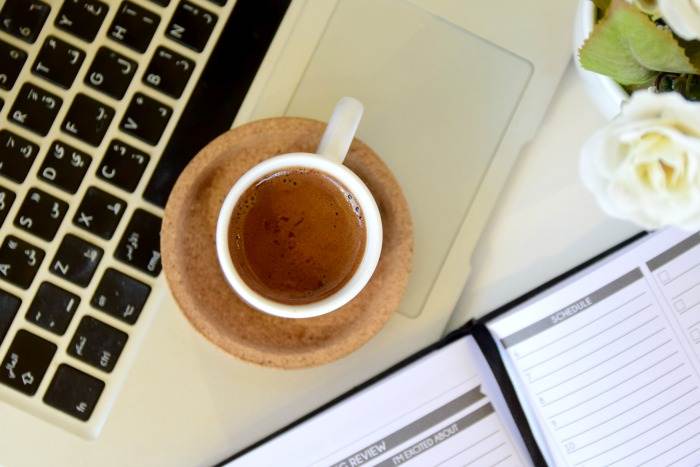Download your FREE ebook!
Caffeine – Is it Good or Bad for You?

Is caffeine good or bad for you? Some would say to avoid it, others love it. Up to 80-90% of adults ingest caffeine every day. Should you?
Let’s talk about what caffeine is, how it affects the body, and whether or not it’s good or bad for you. There are definitely some people who should avoid it, and typical symptoms to look out for to see if that’s you.
WHAT IS CAFFEINE AND HOW IT AFFECTS THE BODY
Caffeine is a stimulant that is naturally found in many foods and drinks. It’s found in:
- A cup of coffee (100-200 mg caffeine);
- A cup of Turkish Coffee (40-60mg caffeine);
- A ‘finjan’ of Arabic Coffee (40-60mg caffeine);
- A cup of black tea (40-120 mg);
- A cup of green tea (25-40mg);
- A cup of decaf coffee (3-12 mg); and,
- 2 squares of dark chocolate (5-35 mg).

Caffeine is also available as a supplement, and is added to some soft drinks (20-40 mg) and energy drinks (50-160 mg). It’s even in some medications as well.
Caffeine’s main effect is on the brain. It boosts alertness and focus. Caffeine can also improve moods, increase metabolism and improve exercise performance. It does these by blocking the “adenosine receptors” in our brain. After being absorbed by the gut caffeine is broken down by the liver. Adenosine is a relaxation compound, and caffeine blocks its effects. These stimulant effects of caffeine can be felt within 20-60 minutes after ingestion.
Your body can build up tolerance to it as well. So, within a few days of regular consumption, you need more to get the same effect. This is true for its stimulating and dehydrating effects. These effects reduce over time of continued caffeine intake.
Caffeine is also addictive. Some withdrawal symptoms include headaches, shakiness/jitters, and nausea. Are any of you having flashbacks to the first day of Ramadan?
IS CAFFEINE GOOD OR BAD?
This really depends on the person.
There are certain groups of people who should avoid too much caffeine. They are;
- Pregnant women;
- People with irregular heart beats;
- People who have difficulty sleeping; and,
- Children and adolescents.
In terms of metabolism, people metabolize caffeine at different rates. Some people are fast metabolizers, while others are slow. There can be up to 40x difference between how fast/slow different people metabolize caffeine. Fast metabolizers can feel the energy boost, and all the effects are finished in a few hours. Slow metabolizers can get jittery, anxious feelings, and have trouble sleeping many hours after ingesting the caffeine. I’m definitely a slow metabolizer and that’s why I mainly have decaf coffee, and avoid any caffeinated drinks after 4pm.
Look out for effects of caffeine on your body. Some common ones are:
- Restlessness and anxious feelings;
- Irregular heartbeat;
- Increased blood pressure;
- Difficulty sleeping;
- Increase in anxious feelings;
- Heartburn;
- Headaches or migraines.
If none of these bother you, then up to 400 mg/day may be fine, which is around 4-5 cups of coffee a day. Keep in mind this is a maximum amount assuming you are a fast metabolizer and don’t have any of the symptoms listed above.
It’s also worth mentioning that many caffeinated drinks contain a lot of sugar and sometimes other ingredients you may want to avoid. This is something else to consider when deciding if/how much caffeine is right for you
CONCLUSION
Caffeine is the most popular natural stimulant. It’s found in many foods and drinks, most commonly in coffee, tea and chocolate. It’s also added to soft drinks, energy drinks and some supplements and medications.
Some people should avoid too much caffeine; while up to 400 mg/day may be fine in others. Caffeine affects different people differently. If you have any of the common side effects after you have some, then consider reducing your intake.
If you’re like me and enjoy you’re cup of morning coffee and afternoon tea, then why not try making my coffee as a lower caffeine alternative to Turkish coffee, it tasted amazing, just make sure to find an organic brand of coffee that uses water-process method to remove the caffeine. In the afternoon, switch to Roiboos instead of black tea….it tastes just as good but is totally caffeine-free.

REFERENCES
Related Posts
HEALTH + WELLNESS
LIFESTYLE
HEALTH COACHING
Processing...
Thank you!
Your subscription has been confirmed.
You'll hear from us soon.




Leave A Comment